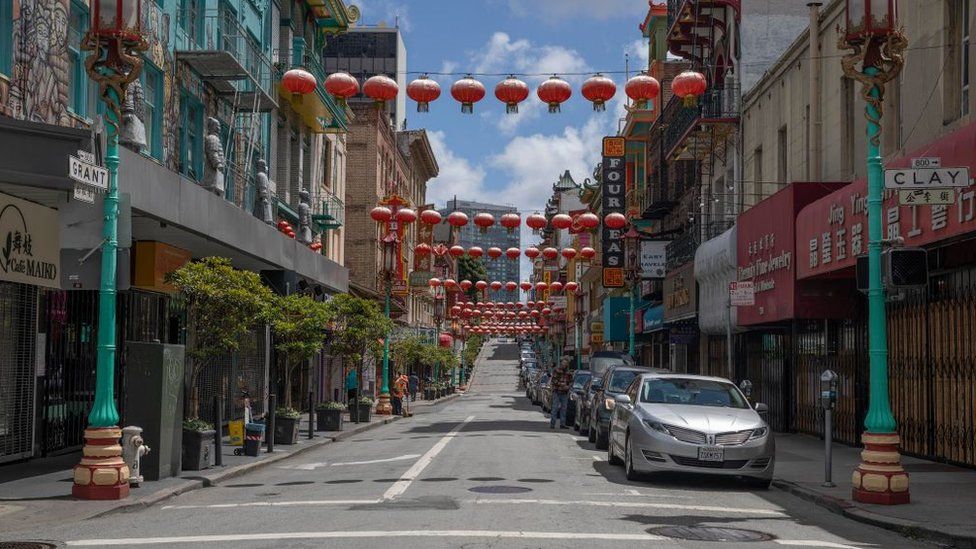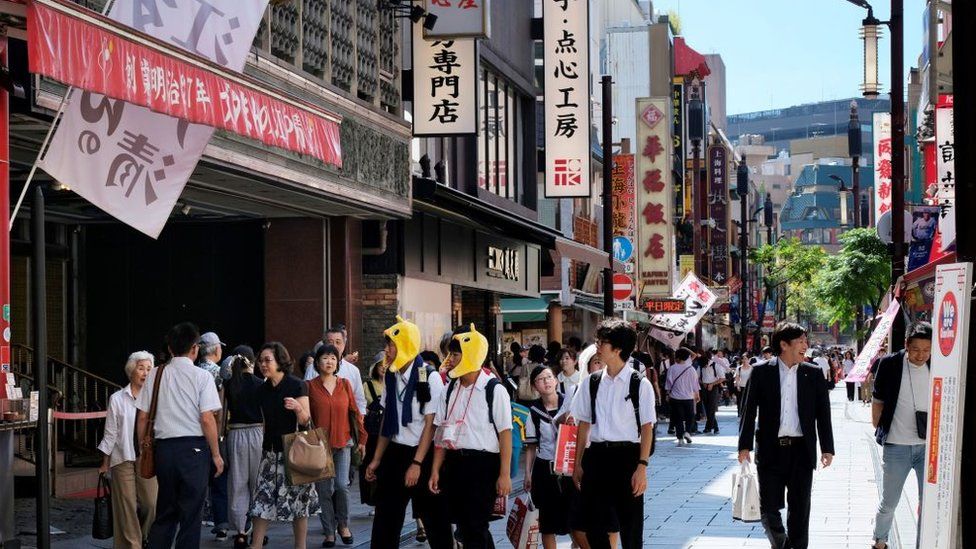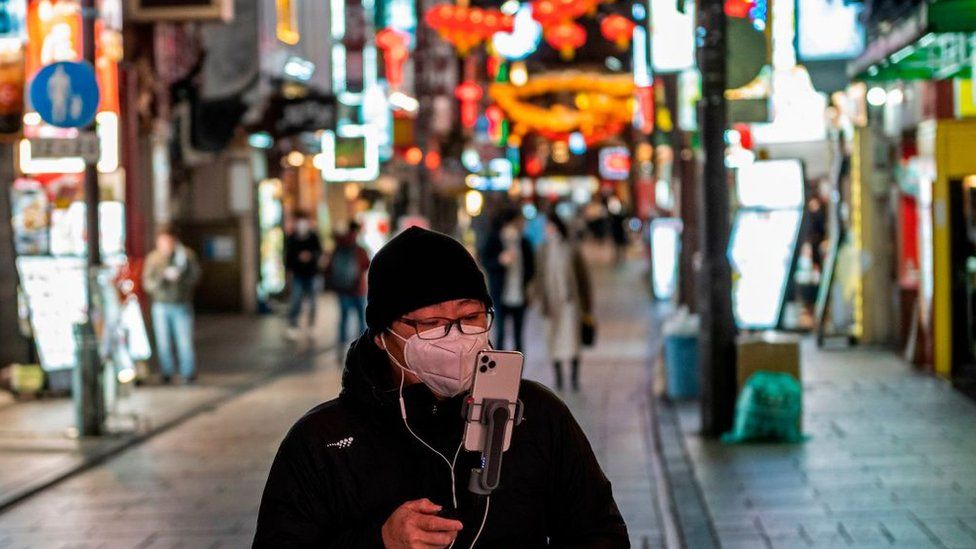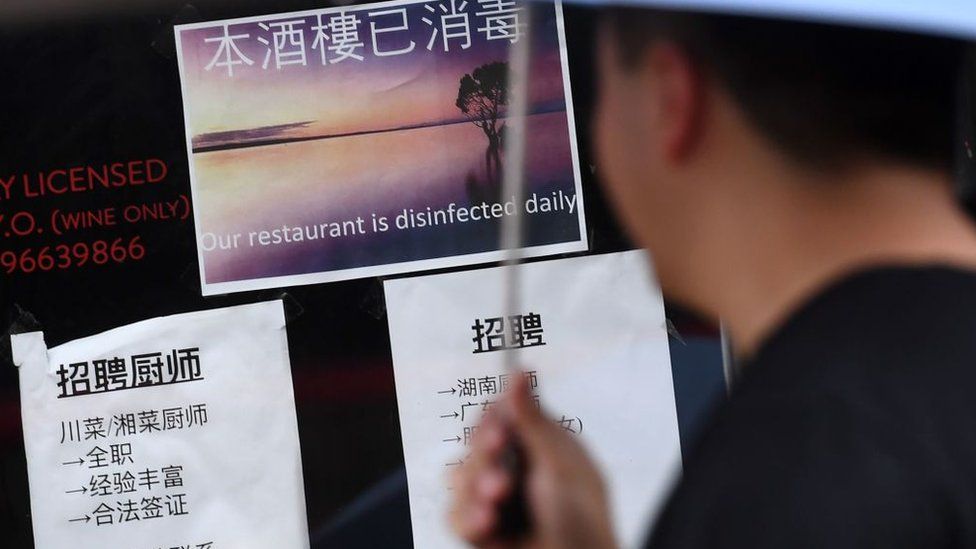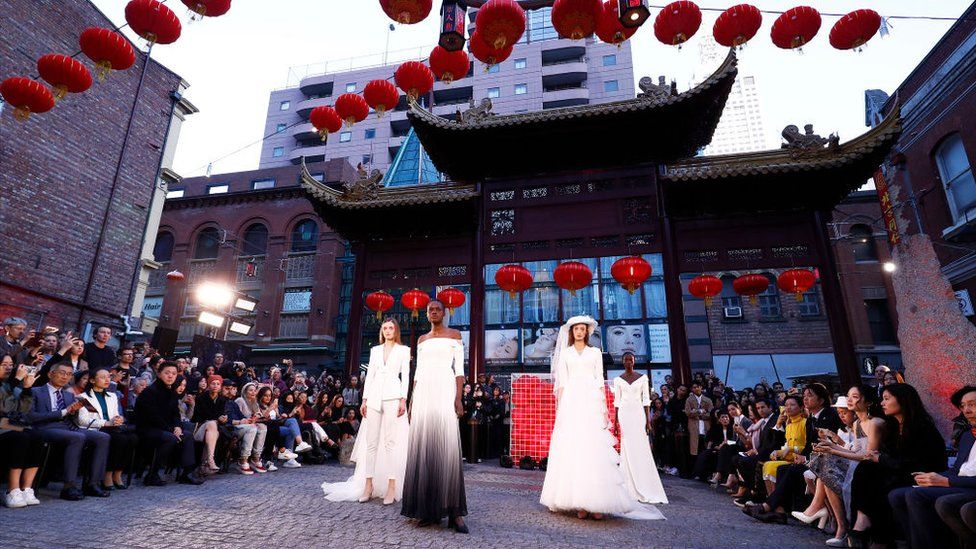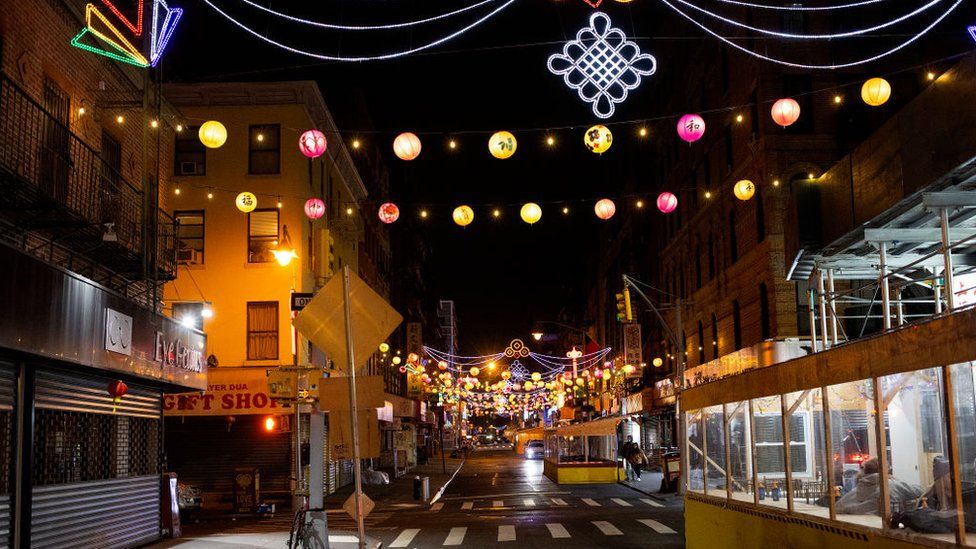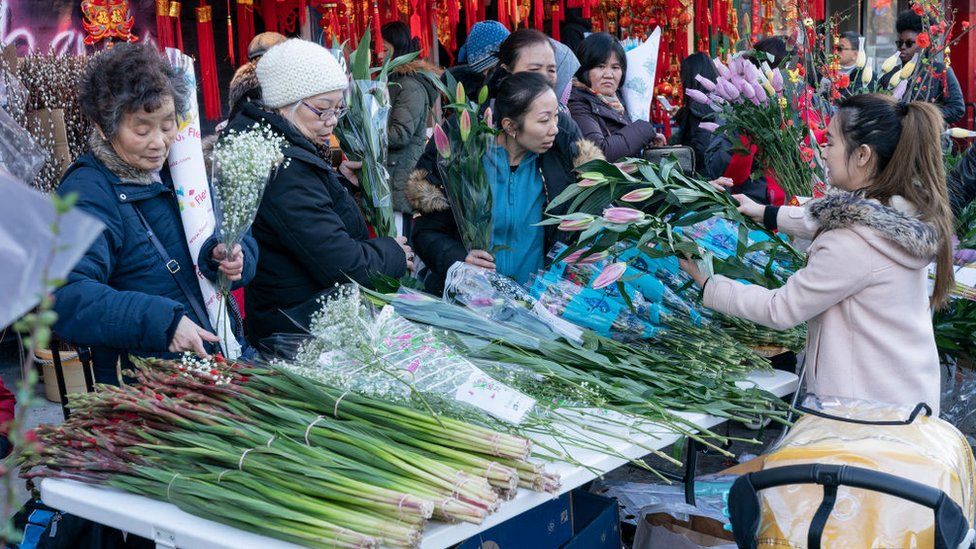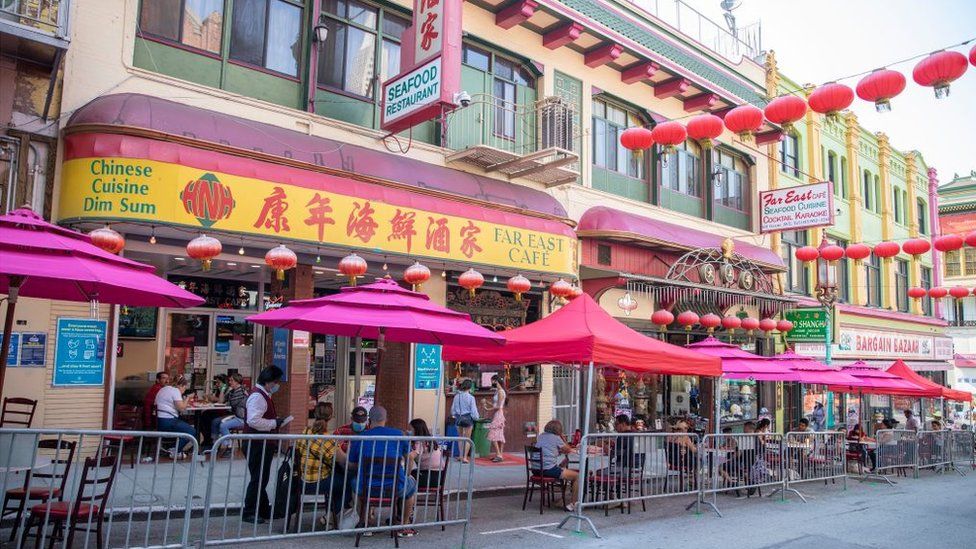- Joined
- Mar 31, 2020
- Messages
- 9,153
- Points
- 113
Chinatown Complex stall owner and son who works at Changi Airport Swensen's test positive for COVID-19
www.channelnewsasia.com
Chinatown Complex
SINGAPORE: A stall owner who works at a sundry shop in Chinatown Complex and his son who works at Changi Airport Swensen's were among Singapore's three community COVID-19 cases reported on Thursday (Feb 11).
The stall owner is a 66-year-old permanent resident identified as Case 60138. He first developed a dry cough on Jan 28 and "anosmia", or loss of smell, on Feb 9, but did not seek medical attention, said the Ministry of Health (MOH).
His infection was detected through community surveillance testing of stallholders and shop owners in Chinatown on Feb 9.
The man's test result came back positive for COVID-19 on Feb 10, and he was taken by ambulance to the National Centre for Infectious Diseases (NCID).
His serology test result has come back negative, indicating that this is likely a current infection, said MOH.
The stall owner's 32-year-old son, identified as Case 60150, is a Singaporean and was identified as a contact of his father.
He works part-time as a waiter at Swensen's at Changi Airport Terminal 3, and was last at work on Feb 8.
The man developed a runny nose on Feb 8 after work but did not seek medical treatment, said MOH. As he had been identified as a close contact of his father, MOH contacted the man on Feb 10 and he was placed in quarantine.
He reported symptoms and was taken to NCID, where he was tested for COVID-19 on the same day. His test came back positive on Feb 11.
His serology test result has also come back negative, said MOH.
FATHER, SON DID NOT USE TRACETOGETHER
"Both Cases 60138 and 60150 do not use the TraceTogether app, and while they both have TraceTogether tokens, they did not carry their tokens with them," said MOH.
"Individuals are reminded to turn on their TraceTogether App or carry their TraceTogether token at all times so that we can quickly identify and isolate the close contacts of COVID-19 cases, and limit further infections."
"We strongly urge everyone to do their part to reduce the risk of transmission," said the ministry.
"Those who are unwell, including those showing early or mild symptoms, should be socially responsible and seek medical attention immediately and stay at home to prevent the spread of illness to others."
MORE THAN 1,200 PEOPLE TESTED IN CHINATOWN
Singapore's COVID-19 multi-ministry task force has been conducting community surveillance testing for identified community groups.
"This enables us to contain cryptic cases in the community early, and prevent further transmission," said MOH.
In the lead up to Chinese New Year, surveillance testing was done on Feb 8 and Feb 9 for stallholders, shop owners, people in the food and beverage industry and food delivery workers operating in and around Chinatown.
One test sample was rejected by the laboratory, and the remaining 1,219 individuals tested negative for the virus, said MOH.
NSF DEVELOPED SYMPTOMS AFTER MEDICAL LEAVE
Singapore's remaining community case reported on Thursday is a full-time national serviceman (NSF).
He works at the Singapore Armed Forces premises at Paya Lebar Airbase and does not stay in camp. His work does not entail interacting with other units, said MOH.
The 20-year-old felt unwell on Feb 3 and sought medical treatment at a general practitioner clinic. As he did not have symptoms associated with acute respiratory infection, he was not tested for COVID-19 but was placed on medical leave, added MOH.
The NSF subsequently went back to work on Feb 8. The next day, he developed a fever and runny nose. He sought medical treatment at the medical centre located at Paya Lebar Airbase and was swabbed.
His test result came back positive for COVID-19 on Feb 10, and he was taken by ambulance to NCID. His serology test result has come back negative, said MOH.
Epidemiological investigations for all three community cases are ongoing.
In the meantime, all the identified close contacts of the cases, including their family members and co-workers, have been isolated and placed in quarantine, said MOH. They will be tested at the start and end of their quarantine period to detect asymptomatic cases.
The Health Ministry said it would conduct serological tests for the close contacts to determine if the cases could have been infected by them.
Singapore reported a total of 12 new COVID-19 infections on Thursday, bringing the country's case tally to 59,759.
www.channelnewsasia.com
Chinatown Complex
SINGAPORE: A stall owner who works at a sundry shop in Chinatown Complex and his son who works at Changi Airport Swensen's were among Singapore's three community COVID-19 cases reported on Thursday (Feb 11).
The stall owner is a 66-year-old permanent resident identified as Case 60138. He first developed a dry cough on Jan 28 and "anosmia", or loss of smell, on Feb 9, but did not seek medical attention, said the Ministry of Health (MOH).
His infection was detected through community surveillance testing of stallholders and shop owners in Chinatown on Feb 9.
The man's test result came back positive for COVID-19 on Feb 10, and he was taken by ambulance to the National Centre for Infectious Diseases (NCID).
His serology test result has come back negative, indicating that this is likely a current infection, said MOH.
The stall owner's 32-year-old son, identified as Case 60150, is a Singaporean and was identified as a contact of his father.
He works part-time as a waiter at Swensen's at Changi Airport Terminal 3, and was last at work on Feb 8.
The man developed a runny nose on Feb 8 after work but did not seek medical treatment, said MOH. As he had been identified as a close contact of his father, MOH contacted the man on Feb 10 and he was placed in quarantine.
He reported symptoms and was taken to NCID, where he was tested for COVID-19 on the same day. His test came back positive on Feb 11.
His serology test result has also come back negative, said MOH.
FATHER, SON DID NOT USE TRACETOGETHER
"Both Cases 60138 and 60150 do not use the TraceTogether app, and while they both have TraceTogether tokens, they did not carry their tokens with them," said MOH.
"Individuals are reminded to turn on their TraceTogether App or carry their TraceTogether token at all times so that we can quickly identify and isolate the close contacts of COVID-19 cases, and limit further infections."
"We strongly urge everyone to do their part to reduce the risk of transmission," said the ministry.
"Those who are unwell, including those showing early or mild symptoms, should be socially responsible and seek medical attention immediately and stay at home to prevent the spread of illness to others."
MORE THAN 1,200 PEOPLE TESTED IN CHINATOWN
Singapore's COVID-19 multi-ministry task force has been conducting community surveillance testing for identified community groups.
"This enables us to contain cryptic cases in the community early, and prevent further transmission," said MOH.
In the lead up to Chinese New Year, surveillance testing was done on Feb 8 and Feb 9 for stallholders, shop owners, people in the food and beverage industry and food delivery workers operating in and around Chinatown.
One test sample was rejected by the laboratory, and the remaining 1,219 individuals tested negative for the virus, said MOH.
NSF DEVELOPED SYMPTOMS AFTER MEDICAL LEAVE
Singapore's remaining community case reported on Thursday is a full-time national serviceman (NSF).
He works at the Singapore Armed Forces premises at Paya Lebar Airbase and does not stay in camp. His work does not entail interacting with other units, said MOH.
The 20-year-old felt unwell on Feb 3 and sought medical treatment at a general practitioner clinic. As he did not have symptoms associated with acute respiratory infection, he was not tested for COVID-19 but was placed on medical leave, added MOH.
The NSF subsequently went back to work on Feb 8. The next day, he developed a fever and runny nose. He sought medical treatment at the medical centre located at Paya Lebar Airbase and was swabbed.
His test result came back positive for COVID-19 on Feb 10, and he was taken by ambulance to NCID. His serology test result has come back negative, said MOH.
Epidemiological investigations for all three community cases are ongoing.
In the meantime, all the identified close contacts of the cases, including their family members and co-workers, have been isolated and placed in quarantine, said MOH. They will be tested at the start and end of their quarantine period to detect asymptomatic cases.
The Health Ministry said it would conduct serological tests for the close contacts to determine if the cases could have been infected by them.
Singapore reported a total of 12 new COVID-19 infections on Thursday, bringing the country's case tally to 59,759.



